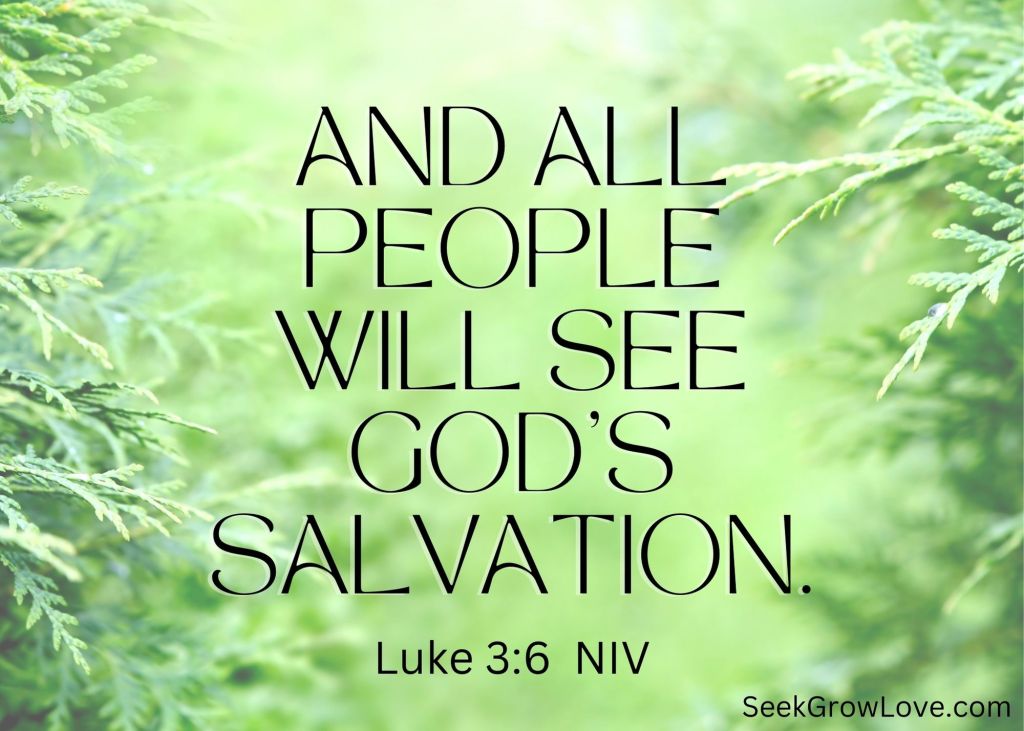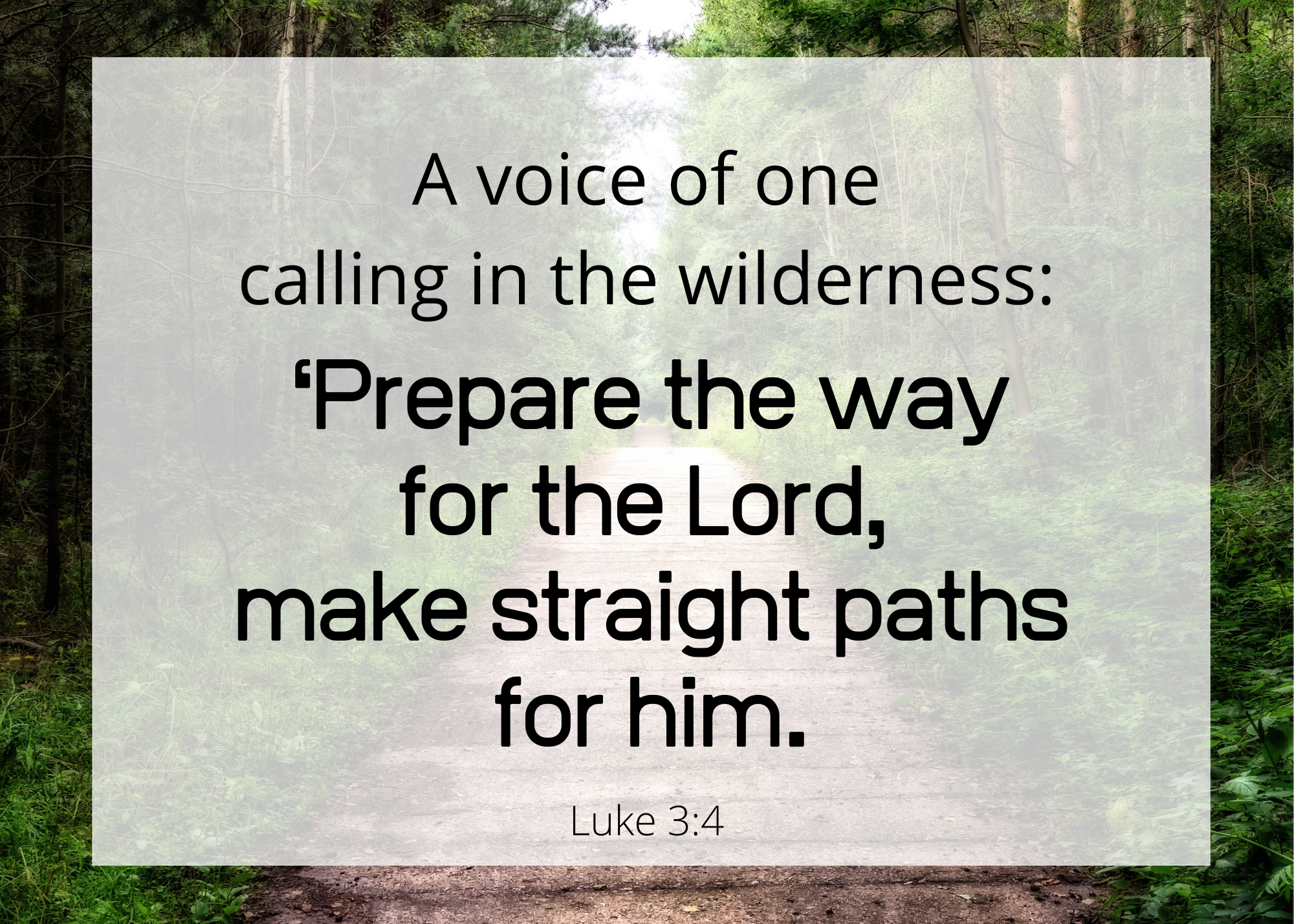
Old Testament: Joshua 19-20
Psalms: Psalm 103
New Testament: Luke 3
Did you know that cities of refuge were first established by God? Did you know that everything good and just has its origins from our God? Our God performs righteous deeds and judgments for all who are oppressed. Our God establishes mercy and justice, and desires that from those who fear him. But often we do not. Instead, we pervert his ways. We do what Romans chapter one says and distort his good gifts and his good intentions for us.
We don’t get what we deserve. We deserve death, or at the very least, a reprimand, like the one God gave through his prophet John the Baptist to the crowds coming to him to be baptized.
Luke 3:7-8 (NASB) 7…“You brood of vipers, who warned you to flee from the wrath to come? 8 Therefore bear fruits in keeping with repentance.”
Psalm 103 tells us that our God 10 “has not dealt with us according to our sins, nor rewarded us according to our iniquities” (Psalm 103:10). If he did, none of us would be here.
Instead, 12 “as far as the east is from the west, so far has he removed our transgressions from us.” (Psalm 103:12). We must remember that. He pardons, he heals, he redeems. He’s compassionate and gracious, slow to anger and abounding in lovingkindness. In our New Covenant, he does this through his son Jesus. That is the God we serve. But we must also remember that he will not strive with us forever.
Can you imagine the impact our modern Sanctuary Cities would have if they functioned with God’s definition of mercy and justice at the helm? One day they will, assuming we still need them, when our righteous ruler, King Jesus returns. In the meantime, we can be Jesus’s hands and feet to the oppressed by asking our Lord Jesus what we can do.
Before the people asked Jesus what they should do, they asked the one who prepared the way before him, John the Baptist, knowing that a man from God had the authority to teach them and tell them what to do. He responds with justice because he knew what to say through the holy spirit.
His responses sound very familiar, like the responses Jesus gives during his ministry. I believe this is because it is the same spirit that is within John the Baptist that is then placed fully upon Jesus at his baptism, but to an even greater measure than it was placed on the highly respected John the Baptist. It reminds me of Elijah, being full of the holy spirit, who went before Elisha, who received an even greater measure of spirit from his God. In fact, the word tells us that John the Baptist came in the spirit of Elijah. Jesus goes so far as to tell us that John the Baptist “is” Elijah who is to come. Of course, not literally; all in spirit.
The people were amazed by John. They, 15 “were in a state of expectation and all were wondering in their hearts about John, as to whether he was the Christ.” (Luke 3:15). Of course, he was not, and made sure the people knew that the one they were looking for would not baptize them with water, but with the holy spirit.
It is Jesus whom we should look to with our questions. In Jesus we find all the fullness of the spirit of God, without measure, because God gave all power and authority to his son, with whom he is well pleased, until all enemies are made his footstools for him in the end. It is Jesus who is our salvation, a man who is mightier than John the Baptist; A man who eventually gave us the holy spirit, the power and presence of God, so that we could “be Jesus” to those who are oppressed in our day.
Unfortunately, as we look to the perverted justice system in our society, we see that there is much work to be done before our life race ends. It will never be fully just until Jesus returns and makes all wrongs right, but if we have the power now, in an even greater capacity than even Jesus was given, because now the holy spirit is given through Jesus post his death on the cross, we can keep doing the work he left for us to do.
God told us what he desires from us throughout scripture. Everything he wants for us he wants because it is good for us, and it culminates in Jesus. If we are going to stop perverting God’s words and his will, we must repent and ask God through his son what we must do! He has made known his ways through Jesus in the New Covenant. Remember his precepts through Jesus Messiah and do them. Remember what he did through Jesus and remember what Jesus chose to do for you and I often. Jesus’s yoke is easy. Serve him by doing his will, which is God’s will. And bless the Lord oh my soul for his everlasting lovingkindness!
-Juliet Taylor
Questions
- What does it mean to bear fruits in keeping with repentance?
- Why do you think God chooses to work through his son? In turn, why do you think Jesus chooses to work through us?
- What work do you think Jesus wants you to want to do for him in your life race?


